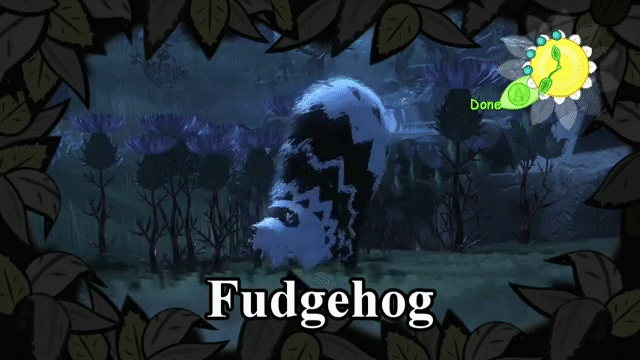I recently jumped back into a personal favorite: The Last of Us. At its higher difficulties, The Last of Us is pure survival horror, always leaving players with little to no resources, too many enemies to count, and a plethora of options when it comes to enemy encounters. I was immediately flooded with memories of an engaging post-apocalyptic road trip, but first had to complete Naughty Dog’s incredible tutorial level. One striking moment in this tutorial level got me thinking. After you as a player are taught that spores in the air are fatal, both Tess and Joel put on gas masks to prevent themselves from turning into infected members of society. Soon after, the player is given a choice. In the image below, notice two things: an NPC is caught under rubble with a broken face mask, and there is a flashing gun laying on the ground to the left of this trapped character.
After Tess (the companion NPC for the tutorial) asked me what I wanted to do about this situation, I felt torn. I know from the previous encounter that these infected creatures are dangerous, vile, and very scary. I don’t want to deal with them again anytime soon, so I should put this guy out of his misery before he turns and bites my neck flaps off… right? I only have a few bullets left, but there’s more ammo right next to me. But killing this guy is just plain wrong… right?
The choice is yours morally ambiguous player!
“Why am I okay with this choice?” I thought to myself as I held L2 to aim. I pulled R2, then asked, “Master Chief in Halo probably wouldn’t have a similar player choice to murder a helpless marine with the Flood desperately chasing after him… would he?”
Master Chief is one of the most iconic heroes of all time, and he kills things constantly. Heroes like Master Chief fulfill fantasies we’ve all had as kids: saving the world from an unstoppable alien threat. The Last of Us is brilliant in that it attracts players with its simple zombie apocalypse story, but has you stick around for its incredibly complex characters. In The Last of Us you play a grizzled apocalypse survivor with the simple task of taking cargo to a location. The stakes are easy for players to grasp from the beginning, but they get higher and higher as both you and Joel get more and more invested in the “cargo” as the game progresses. From beginning to end, The Last of Us is constantly asking players to make life-or-death decisions. The same ingredients in your crafting tree make either a molotov cocktail or a health kit, for example. Choices like the one pictured above can only be made by a morally ambiguous character which a player can intimately connect with.
Players given similar choices in Halo would almost always decide to save a life, because the fantasy of all the Halo games is simple: space marine that saves the universe from ugly aliens. Who wouldn’t want to save the human race from an invading alien species?
If I’m being honest, however, fantasies with less clear intentions are the reason I am a game designer. Games that ask a player to make difficult choices at every moment of gameplay attract me more than something as “simple” as saving the world.
Characters in other games like Heavy Rain, God of War, or Red Dead Redemption II expose players to difficult choices with one common thread: their characters are not out to save the world. Instead, these characters are protecting someone from the dangers of the rest of the world. Players are exposed to choices that effect the outcome of the character relationships in the game, not the stakes themselves.
Heavy Rain notoriously asked players if cutting off their finger was worth more information on their son’s kidnapper. [1]
In reality, these choices go deeper than changing the outcome of the game. These choices help players realize just where their priorities lie. I chose to save a man from pain, suffering, and turning into a lifeless zombie in The Last of Us, knowing very well that I would have to use a precious bullet. In Red Dead Redemption II, I choose to be a heartless cowboy to anyone that owes our gang money, because putting food on the table for Dutch and the gang is more important to me. If breaking someone’s face and having the authorities chase me out of town is the only consequence for keeping my family healthy and happy, I'm okay with that.
Look at all these mouths I have to feed as Arthur in Red Dead Redemption II. [2]
It’s no coincidence that three of my favorite games ask players to put family first, because I was raised with the same moral compass. Blood is thicker than water for Joel, Kratos, Arthur, and I, and each of their respective games consistently remind players of the only good in the world being their families. Growing up, every decision my parents made was in the interest of bettering my life. Like two of the most beloved antiheroes of my generation (Joel and Kratos), they made difficult decisions with the intent of bettering their child’s life.
Kratos and his son Boy are surviving together in God of War (2016). [3]
Joel’s new daughter is the only thing that matters to him anymore in The Last of Us. [4]
If The Last of Us Part II really wants to take morally ambiguous characters and player choice to the next level, I would recommend Naughty Dog let players choose which characters survive and which ones die. If the information fans have so far is anything to work with, Ellie is going on killing spree against a dangerous cult. If Part II has me fall in love with a character, has this character switch sides, then asks me to make my own decision for saving or killing them, I don’t know what I would do. Should I save an old friend, or rid the world of a deranged cult follower? The power of videogames lies in the difference between having a theoretical philosophical conversation about a morally ambiguous decision and actually having to make the decision. In other words, forcing me to make a decision I don’t know the right answer to (rather than just thinking about it) is the secret sauce of my favorite games. Giving players this much choice lets them dive deeper into their own moral compass, and progresses our medium as the art form to pay close attention to.
Sources:












![Heavy Rain notoriously asked players if cutting off their finger was worth more information on their son’s kidnapper. [1]](https://images.squarespace-cdn.com/content/v1/5a2ea8c8017db2454c71d219/1557244268052-C9LTUSPUYQJ4AAC0BD9O/maxresdefault.jpg)
![Look at all these mouths I have to feed as Arthur in Red Dead Redemption II. [2]](https://images.squarespace-cdn.com/content/v1/5a2ea8c8017db2454c71d219/1557244588324-CUIMN9PILJ1ZSVP8T78M/Dutch%27s_Gang.jpg)
![Kratos and his son Boy are surviving together in God of War (2016). [3]](https://images.squarespace-cdn.com/content/v1/5a2ea8c8017db2454c71d219/1557244688214-9BRX06IKSJYLQUNVJ00G/God-of-War-Atreus-L.jpg)
![Joel’s new daughter is the only thing that matters to him anymore in The Last of Us. [4]](https://images.squarespace-cdn.com/content/v1/5a2ea8c8017db2454c71d219/1557244667109-QB8FINUJY3PUAJY5455J/31170-Ellie-dark-dark_hair-The_Last_of_Us-apocalyptic-video_games-Joel.jpg)